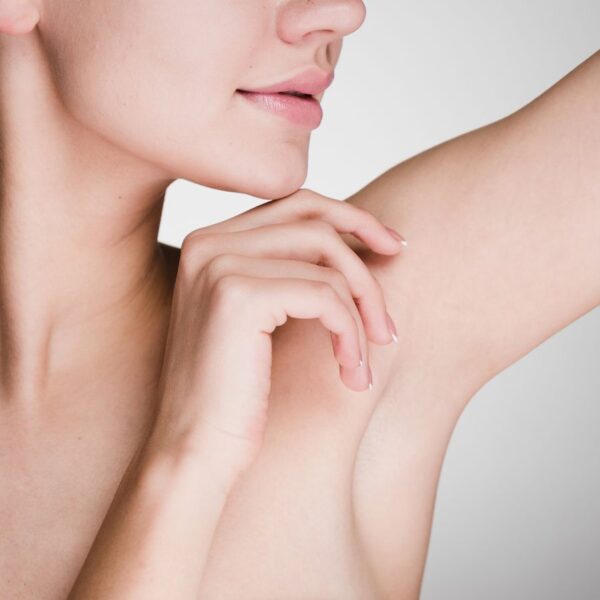Overview of Stress and Skin
Stress is a normal psychological and physical reaction to the demands of life. It can be experienced in response to both positive and negative events, such as an upcoming exam or the death of a loved one. Everyone experiences stress differently, but it can have a major impact on our lives if it is not managed properly. One area that is often affected by stress is skin health.
Definition of Stress
Stress is the body’s response to any demand placed upon it. It can be caused by external factors, such as work, school, or relationships, or internal factors, such as fear or anxiety. When we are faced with a stressful situation, our bodies release hormones that cause physical reactions such as increased heart rate and blood pressure. These reactions help us to respond quickly and effectively to the situation at hand.
Effects of Stress on Skin
When we experience stress, our skin can react in several ways. It may become dry and flaky due to decreased oil production, or red and inflamed due to increased inflammation. Acne breakouts can also occur due to increased sebum production and clogged pores. In addition, psoriasis flare-ups may worsen due to stress-induced immune system changes. Finally, stress can cause premature aging due to increased cortisol levels in the body which breaks down collagen and elastin fibers in the skin.
It is important to recognize how stress affects our skin so that we can take steps to reduce its impact on our health. There are many ways that we can reduce stress and improve our overall wellbeing.
Ways to Reduce Stress
Stress can have a significant impact on your physical and mental health, and one of the most common areas it affects is your skin. Fortunately, there are many ways to reduce stress and improve your overall wellbeing.
Healthy Eating Habits
One of the best ways to reduce stress is to make sure you’re eating a nutritious diet. Eating healthy foods can help keep your energy levels up, while also providing essential nutrients for healthy skin. Try to include plenty of fruits, vegetables, whole grains, lean proteins, and low-fat dairy products in your meals. Avoid processed foods as much as possible, as these can be high in sugar and unhealthy fats which can contribute to stress.

Exercise and Relaxation Techniques
Regular exercise is an excellent way to manage stress levels and improve overall health. Exercise releases endorphins that can help boost mood and reduce tension in the body. Additionally, relaxation techniques such as yoga or meditation can help you learn how to cope with stressful situations more effectively. These activities can also improve circulation which helps maintain healthy skin cells.
Skin Care Tips
In addition to the above tips for reducing stress, there are some specific skin care tips that you should follow if you want to keep your skin looking its best:
• Make sure you cleanse your face twice a day with a gentle cleanser
• Always use sunscreen when going outside
• Use moisturizer regularly to keep skin hydrated
• Limit exposure to harsh chemicals or pollutants that could irritate the skin
• Avoid touching or picking at blemishes on the face
• Take warm baths or showers instead of hot ones
By following these tips for reducing stress and taking good care of your skin, you’ll be able to enjoy healthier, glowing skin in no time!
Benefits of Reducing Stress
Reducing stress can have numerous beneficial impacts on both physical and mental health. Taking the time to prioritize self-care and relaxation can help improve overall well-being in a variety of ways.
Improved Skin Health
Stress has been linked to a range of skin conditions, including acne, eczema, psoriasis, and hives. By reducing stress levels, individuals can reduce the frequency and severity of these skin issues. Additionally, taking steps to reduce stress can help prevent wrinkles and other signs of aging by improving sleep quality and reducing cortisol levels in the body which can cause inflammation.
Reduced Risk of Physical Illness
Stress has been linked to an increased risk for developing various physical illnesses such as heart disease, diabetes, stroke, and high blood pressure. Reducing stress through healthy lifestyle choices helps decrease the risk of developing these conditions by improving immune system functioning and reducing inflammation throughout the body.
Improved Quality of Life
Prioritizing self-care is essential for maintaining good mental health and overall happiness. Reducing stress levels helps individuals manage their emotions better while also improving focus and concentration which leads to improved productivity in daily life activities. Additionally, taking steps to reduce stress can help improve relationships with family members or friends by creating a more positive outlook on life situations.
Reducing stress can improve physical and mental health, reduce risk of physical illness, and improve quality of life.
Conclusion
Stress has a direct impact on the health of our skin and can cause physical and mental health issues. It is important to recognize the signs of stress and take steps to reduce it in order to maintain healthy skin and overall wellbeing. Healthy eating habits, exercise, relaxation techniques, and proper skin care can all help to reduce stress levels.
The benefits of reducing stress are numerous, ranging from improved skin health to reduced risk of physical illness and improved quality of life. With a few simple lifestyle changes, you can make a huge difference in your overall health and wellbeing.
Resources
There are many resources available for those looking for more information on stress management and skin health. The American Academy of Dermatology (AAD) offers tips and advice on how to keep your skin healthy as well as how to manage stress. The National Institute of Mental Health (NIMH) provides information on the causes, symptoms, diagnosis, and treatments for various types of mental illness. Additionally, the Centers for Disease Control and Prevention (CDC) offers resources on general health topics such as nutrition, physical activity, sleep, and mental health.
Reduce stress to improve skin health and overall wellbeing; resources available from AAD, NIMH, and CD
Resources
For those looking to learn more about stress and its effects on the skin, there are a variety of resources available online and in print. The American Psychological Association (APA) provides an extensive library of scientific research and literature related to stress, its causes, and its effects on the body. Additionally, the National Institute of Mental Health (NIMH) offers educational materials for individuals looking to better understand their own stress levels and how to manage them.
The Centers for Disease Control and Prevention (CDC) also provides information regarding stress management techniques such as healthy eating habits, exercise, relaxation techniques, and skin care tips. There are also numerous books available from mental health professionals that provide insight into the relationship between stress and skin conditions.
Finally, there are a number of organizations dedicated to providing support for those suffering from chronic stress or skin conditions. The Anxiety and Depression Association of America (ADAA) is an organization that provides resources for those struggling with mental health issues including anxiety and depression. Similarly, the National Eczema Association (NEA) is an organization that provides education and support for individuals living with eczema or other skin conditions.
Conclusion
In conclusion, it is important to recognize the connection between stress and skin health. By understanding this connection, individuals can take proactive steps to reduce their stress levels in order to improve their overall physical health as well as their quality of life. Through education, self-care practices such as healthy eating habits, exercise, relaxation techniques, and skin care tips can help individuals reduce their stress levels in order to achieve healthier skin.
Ready to take the next step? Contact us today to book your free consultation and find out how we can help you reach your aesthetic goals. Our experienced team of board-certified cosmetic surgeons are ready to provide you with all the information you need to make an informed decision. We understand that your decision is an important one and we are here to provide you with the personalized attention and care you deserve. Call us now at 402-395-0511 or book your appointment online to get started.





